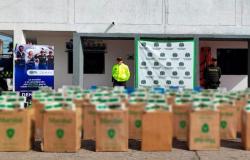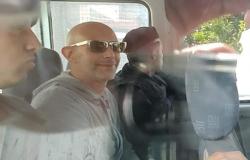This year, what we call initial literacy – or teaching reading and writing – is on the agenda of several governments. Río Negro launched its Training Plan for institutional strengthening and its educational practices called School as a Space of Care, focused on initial literacy with the subtitle AlfabetizaRNos and Neuquén has its Teacher Training Program in Comprehensive Literacy. But the data that we may suspect is alarming about illiteracy at the primary and secondary level is not only not collected or systematized, but is also a few years old.
In 2022, as an educator in the area of Language and Literature in teacher training, I approached a school in the city of General Roca to help teach literacy. Although – as is evident in most schools – in all grades there are non-literate children, the main problem in this one was in the seventh grade, where there were four boys and girls who were about to graduate from secondary school and would do so. without being able to do basic spelling of words. We are not talking about understanding texts, but about achieving the most basic step of literacy: the correspondence between grapheme and phoneme; which within families is usually explained as “he already knows how to read.”
In conversations with the school’s teaching staff () I was able to reveal some, I don’t know if they are causes, but I do know explanations:
First of all -I listen-, we must respect the trajectory of the boy or girl. Even if the child has a high degree of absenteeism, the few days that she attends school it is necessary to evaluate what she has learned, record it and continue to advance. This evaluation modality places emphasis on progress and not shortcomings.
In second place, Attendance is no longer a condition of regularity: if the child goes to school once a week or every ten days (as was one of the cases I attended), he does not lose regularity and – again – what he was able to learn is recorded. , no matter how little that represents.
In third place, repetition – it is considered – ends up representing in fact a punishment or a stigma for the child and he is not responsible for the social, family, political or economic situation that he experiences. Completely agree. However, I can also account for that student’s stigma because his seventh grade classmates are studying other subjects and he still doesn’t even read.
Now, what does that child do next, with a seventh grade certificate that officially indicates that he is capable of going through middle school. I have not followed any particular case, but one can easily suspect that it will not be successful for various reasons: because middle school is not dedicated to literacy; because there are no teachers trained for it or specialized personnel who contemplate this reality and because he will no longer have two or three, but ten or twelve teachers who will be able to take little notice of him and his difficulties.
But the educational system – expert in leaving the bell there and not putting it on the cat – will let the child continue his path until the fifth grade. The middle level also has its devices to, in the name of “paths”, grant a high school degree that allows you to enter university.
I receive students at the higher level – I have not received illiterate ones, in truth – that the system has scammed with a certificate that in no way indicates that he is in a position to access a career.
I receive students who for some reason had to have diagnosis and attention from a technical team -who only have the primary and secondary level, not the higher level-, but they have a degree that lies to them that they are in a position to undertake a university profession.
I wonder then, where is the inclusion, if they are expelled to the street, as quickly as possible -at eighteen years old they are all high school graduates- without tools to continue studying. They try, but they disappear from the higher level classrooms with the first exams. The family ends up being the only one that can offer them a different reality, so, as Pierre Bourdieu says, the school only certifies social inequality.
Natalia Grossenbacher
Language Teacher, Río Negro Teacher Training Institute






